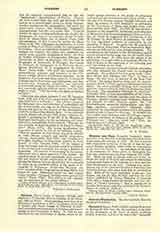

Clemens non Papa (JACQUES CLEMENT), representative of the Flemish or Netherland School of music of the sixteenth century; d. 1558. All that is known with reasonable certainty of his life is that he preceded Nicolas Gombert (1495-1570) as choirmaster at the court of Charles V. An indication of his fame is his nickname non Papa, given to distinguish him from the contemporaneous Pope Clement VII (1523-34). While his style is always noble and fluent, he shows the fault of his time and school of elaborating contrapuntal forms at the expense of a clear and distinct declamation of the text. Clemens was, nevertheless, one of the chief forerunners of Palestrina and Orlandus Lassus, who alone were able to overshadow him. Some of his more important works are: ten masses, one for six, five for five, and four for four voices, published by Petrus Phalesius at Louvain (1555-80), a large number of motets, and four volumes of “Souter Liedekens”, that is psalms set to familiar Netherland melodies, published by Tylmann Susato at Antwerp (1556-57).
JOSEPH OTTEN

